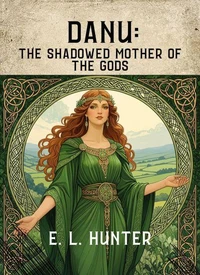Lemuria Uncovered: The Search for a Lost Continent How did a hypothetical land bridge proposed by Victorian zoologist Philip Sclater transform into a crystal-powered spiritual utopia that still inspires devoted followers today? Lemuria stands as one of modernity's most remarkable shape-shifters-a scientific footnote that evolved into an elaborate mythology spanning continents, consciousness, and centuries. "Lemuria Uncovered" examines this elusive lost world through multiple lenses, from the colonial anxieties that birthed "root race" theories to the environmental yearnings expressed in New Age Lemurian communities at Mount Shasta.
Rather than simply dismissing these beliefs, the book unravels why Lemuria's imagined harmony continues to resonate in an age of ecological crisis and spiritual seeking. Drawing on previously overlooked connections between Theosophical writings and indigenous Pacific traditions, this exploration reveals how Western esoteric movements simultaneously appropriated and erased native voices while constructing alternative histories.
The archaeological evidence-or lack thereof-is meticulously evaluated alongside the powerful psychological functions these narratives serve. Where other accounts either uncritically promote Lemurian myths or dismissively debunk them, "Lemuria Uncovered" charts a more illuminating path: understanding how we transform scientific theories into meaning-rich mythologies that address our deepest cultural needs.
The actual human achievements it uncovers-from Polynesian celestial navigation to Tamil maritime networks-prove more remarkable than any fictional lost civilization. For readers fascinated by the boundaries between myth and history, this book transforms Lemuria from a lost continent into something far more valuable: a mirror reflecting our own search for wisdom, belonging, and purpose in a rapidly changing world.
Lemuria Uncovered: The Search for a Lost Continent How did a hypothetical land bridge proposed by Victorian zoologist Philip Sclater transform into a crystal-powered spiritual utopia that still inspires devoted followers today? Lemuria stands as one of modernity's most remarkable shape-shifters-a scientific footnote that evolved into an elaborate mythology spanning continents, consciousness, and centuries. "Lemuria Uncovered" examines this elusive lost world through multiple lenses, from the colonial anxieties that birthed "root race" theories to the environmental yearnings expressed in New Age Lemurian communities at Mount Shasta.
Rather than simply dismissing these beliefs, the book unravels why Lemuria's imagined harmony continues to resonate in an age of ecological crisis and spiritual seeking. Drawing on previously overlooked connections between Theosophical writings and indigenous Pacific traditions, this exploration reveals how Western esoteric movements simultaneously appropriated and erased native voices while constructing alternative histories.
The archaeological evidence-or lack thereof-is meticulously evaluated alongside the powerful psychological functions these narratives serve. Where other accounts either uncritically promote Lemurian myths or dismissively debunk them, "Lemuria Uncovered" charts a more illuminating path: understanding how we transform scientific theories into meaning-rich mythologies that address our deepest cultural needs.
The actual human achievements it uncovers-from Polynesian celestial navigation to Tamil maritime networks-prove more remarkable than any fictional lost civilization. For readers fascinated by the boundaries between myth and history, this book transforms Lemuria from a lost continent into something far more valuable: a mirror reflecting our own search for wisdom, belonging, and purpose in a rapidly changing world.

 , qui est-ce ?
, qui est-ce ?